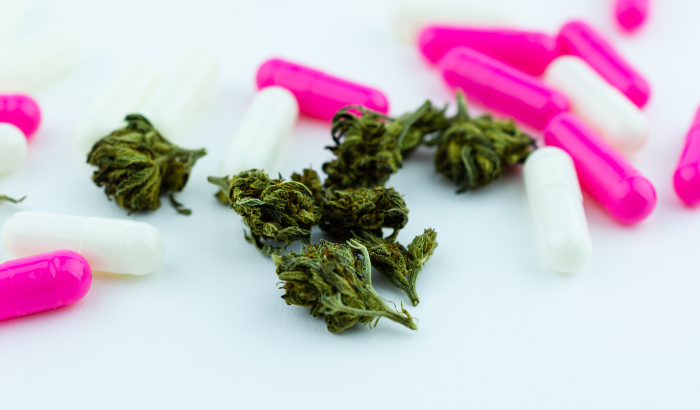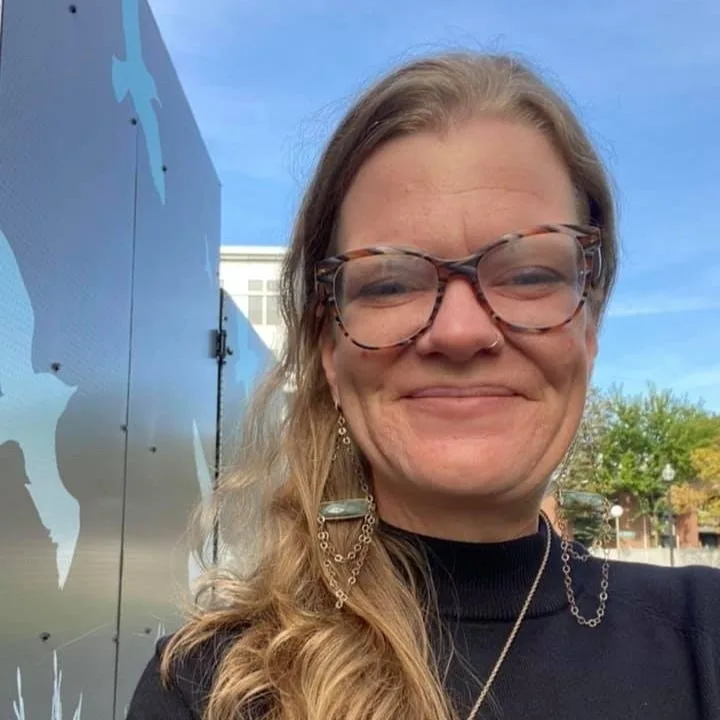
We are in need of urgent solutions, and the role that cannabis can play is not only compelling, it’s a practical, non-lethal and legal tool in the kit that we could be employing as a harm reduction method.
The following is a shortened version of written testimony submitted to the Massachusetts legislature’s Joint Committee on Cannabis Policy by Dr. Marion McNabb of the Cannabis Center of Excellence in support of An Act relative to cannabis research funding. It has been edited for publishing.
I have been working in the cannabis industry in Massachusetts since 2017 conducting cannabis research studies and education programs. I was nominated by state Treasurer Deb Golderberg in 2021 to the Cannabis Control Commission’s Cannabis Advisory Board, and am the chair of the CAB’s Research Subcommittee.
I am in full support of An Act relative to cannabis research funding, as it would provide the necessary public funding to conduct cannabis research studies in Massachusetts and allow further exploration of cannabis and the role it can play in addressing the opioid epidemic, particularly around harm reduction.
There are currently no public funds available for conducting cannabis research studies in this state. Meanwhile, in the last year alone, 108,000 people in the United States lost their lives to opioid overdoses. Massachusetts declared the opioid crisis a public health emergency in 2014; in 2021, there were more than 2,200 overdose fatalities here.
Massachusetts residents are still suffering, with thousands more seeking substance use treatment due to the use of prescription opioids, heroin, and fentanyl. It’s also notable that there are sub-groups that are more vulnerable to overdoses, including those who are homeless as well as the veteran population. A 2021 review of Department of Public Health data from 2011-2015 found that both homelessness and veteran status were associated with a higher risk of fatal overdose.
We are lucky to have Gov. Maura Healey as our leader, as she led the nation in exposing the wrongdoings of the billionaire Sackler family through Purdue Pharma and McKinsey & Company in causing the opioid epidemic. In 2020, as attorney general, she announced settlements from the nation’s three largest drug distributors that are now providing hundreds of millions of dollars to address the opioid crisis.
We are in need of urgent solutions, and the role that cannabis can play is not only compelling, it’s a practical, non-lethal and legal tool in the kit that we could be employing as a harm reduction method. With the state currently distributing $500 million in opioid resettlement funding, this is an opportunity to think about new approaches, including medical cannabis.
Several research studies have shown the compelling role that cannabis can play as a harm reduction alternative to opiates and other substances. Clinical and scientific evidence suggests that cannabis legalization and consumption may be a harm reduction alternative to other more lethal and unwanted substance use, including unwanted prescription medications used to treat a variety of health conditions. One recent study in Canada found that among a sample of marginalized people who used drugs, approximately one in four participants reported using cannabis for harm reduction at least once during 12 months, with the most frequent reasons including substituting for stimulants (50%) and substituting for illicit opioids (31%).
At the macro level, a 2014 population-level study in the United States found that states with medical cannabis laws had lower rates of opioid overdoses. Similarly, other studies found that states with medical cannabis laws have lower rates of opioid prescriptions and deaths, and that medical and recreational cannabis legalization is associated with a reduction of opioid prescriptions among the privately insured population—especially for the middle-aged population.
Despite these promising findings, it is important to note that these studies have several limitations including selection bias, cross-sectional designs, and self-reported assessments of the opioid-sparing effects of cannabis. In my own research, I am currently conducting a “Cannabis as an Alternative” study asking cannabis consumers and patients information about their use of cannabis as an alternative to alcohol, drugs, and other substances. The study launched on Aug. 15, 2023, and key preliminary findings from 574 responses (29% veterans) include: 53% have been diagnosed with Opioid Use Disorder (OUD); 41% report using cannabis as an alternative therapy for any type of health condition or symptom; 39% used cannabis in the past to address opioid use disorder; 32% are currently using cannabis to treat OUD.
All stakeholders, from governments, to healthcare providers, to researchers and the public, will benefit from considering the evidence for introducing cannabis-based interventions as tools for addressing the opioid crisis. This is an opportunity for Massachusetts to put some of its opioid settlement funds toward solutions with demonstrable, documented results.
























